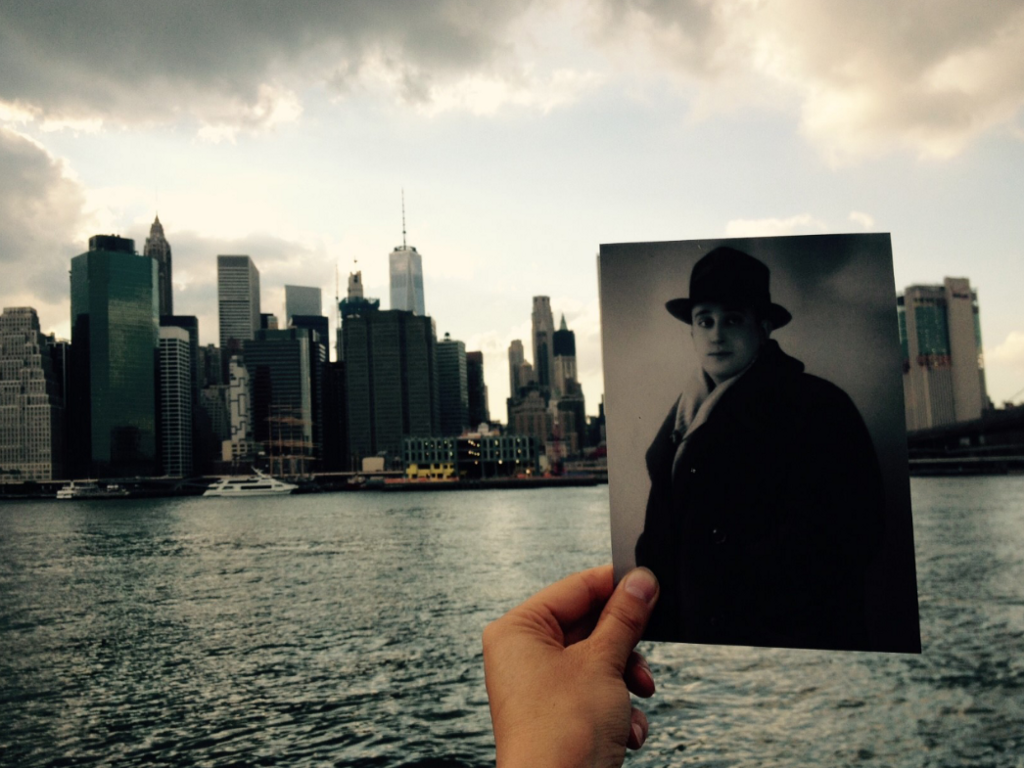Elwira Niewiera’s last feature documentary, “Domino Effect,” was shown at more than 50 festivals and received many awards. She is a member of the Polish Film Academy.
“The Prince and the Dybbuk” will premiere at the 2018 Hot Docs Canadian International Documentary Film Festival on April 26. The film is co-directed by Piotr Rosolowski.
W&H: Describe the film for us in your own words.
EN: “The Prince and The Dybbuk” is a documentary about Michal Waszyński, who was born in 1904 into a a poor Polish-Jewish family in Ukraine and died in Spain as Prince Michal Waszyński, Hollywood producer and exiled Polish aristocrat. He made more than 50 films, including American cinema hits with Sophia Loren and Audrey Hepburn.
Waszyński carefully erased various elements of his biography to be able to rewrite them in his own way. Putting his portrait together from these parts, we are embarking on a quest through a labyrinth of false [threads] and multiple versions of his life.
W&H: What drew you to this story?
EN: I was simply fascinated by this character and his life story. He was a man who wanted to be someone else and became one. It was not the first time a Jewish person working in the movie business created his own name and biography [using] lies and imagining stories. But rarely is anyone as successful in such masterly role-changing as Michał Waszyński. This phenomenal talent attracted my attention and interest.
W&H: What do you want people to think about when they are leaving the theater?
EN: The story of Waszyński has a very particular message. People are not simply born as “chameleons” — it is society that forces them to assume one role or another, to suppress or hide things that are unwanted and uncomfortable deep within their unconscious.
Waszyński made it into a game, turned it into an advantage, and it became his way of life. He was successful in outsmarting and duping the spirit of intolerance that spread across Europe. Yet it left him with a stigma that followed him his whole life. This intolerance has still not by any means been expelled from our world.
W&H: What was the biggest challenge in making the film?
EN: It was a big challenge to make a film about someone who constantly erased his own traces, changing names, religion, titles, or countries. At the beginning of the research it was not really clear if I would be able to meet people who still remembered Michał Waszyński. I even didn’t think that we could find his family in Israel or his second family in Italy.
Waszyński died in 1965 in Madrid, so it’s more than 50 years ago, and many of his friends and co-workers have also passed away. I did the research in several different countries [because of the life he led] — Poland, Ukraine, Italy, and Spain, and many people whom Waszyński was connected with now live in the U.S. or Israel.
In other words the research for this movie was a journey into the unknown. I definitely know much more about him now, but I still consider him a very mysterious man. Nobody knew him really well.
W&H: How did you get your film funded? Share some insights into how you got the film made.
EN: The film is a Polish-German co-production because we are Polish filmmakers who have spent many years living in Germany. The movie was quite expansive due to [accessing and using] archival material and we had to shoot and research in Ukraine, Poland, Italy, Spain, Israel, and the U.S.
The movie was funded by the Polish Film Institute, Adam Mickiewicz Institute, Polish National Film Archive, Medienboard Berlin-Brandenburg, Polish-German Film Fund, Eurimages, and [from German and Polish television].
W&H: What does it mean for you to have your film play at Hot Docs?
EN: Hot Docs is really a great festival with a wonderful audience. I attended the festival with my previous film, “Domino Effect,” in 2014. I hope that my new film will also have a good reception this year.
The fabulous life story of Michal Waszyński — who was remembered as an aristocrat, a liar, an eternally homeless Jew, and a homosexual married to an Italian countess — will be interesting for a Canadian audience.
W&H: What’s the best and worst advice you’ve received?
EN: There is no best and worst advice for me — all advice can be interesting and can lead to something positive!
W&H: What advice do you have for other female directors?
EN: Make your work personal and striking.
Listen to other’s opinions, but don’t lose your own thread. Find and follow your inner voice — it will lead you to tell the right story.
W&H: Name your favorite woman-directed film and why.
EN: I love the work of Susanne Bier, a Danish film director best known for her features “Brothers,” “After the Wedding,” and the Academy Award-winning “In a Better World.” Her films revolve around the subject of fate and the cruel consequences that even the smallest mistakes can have. They show people in complex moral dilemmas and create a unique mix of helplessness and compassion in the audience.
W&H: Hollywood and the global film industry are in the midst of undergoing a major transformation. Many women — and some men — in the industry are speaking publicly about their experiences being assaulted and harassed. What are your thoughts on the #TimesUp movement and the push for equality in the film business?
EN: The male-dominated film business must end! I truly believe that the time has come for women’s stories and perspectives to emerge more strongly in the film industry.







